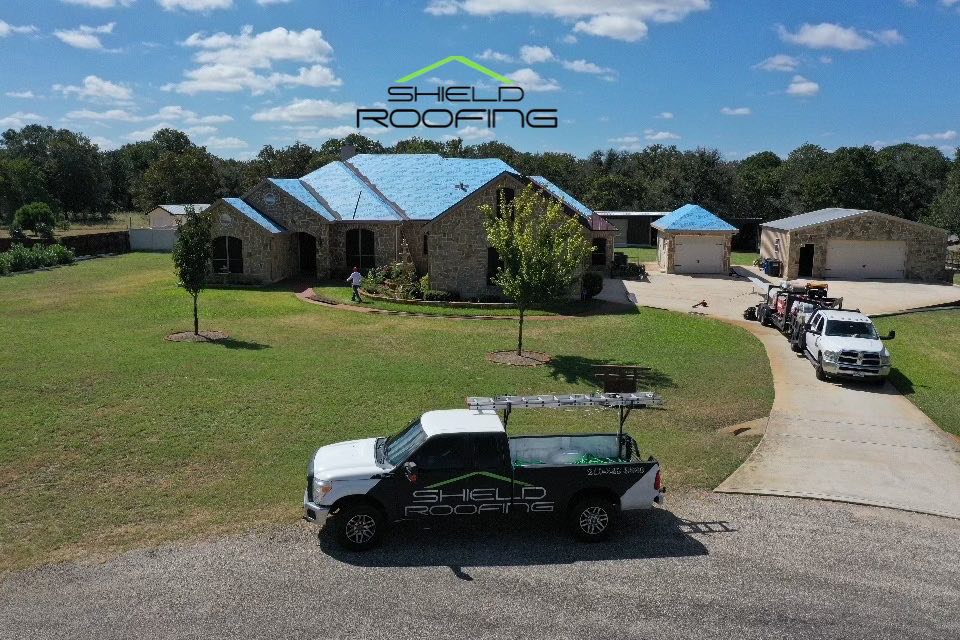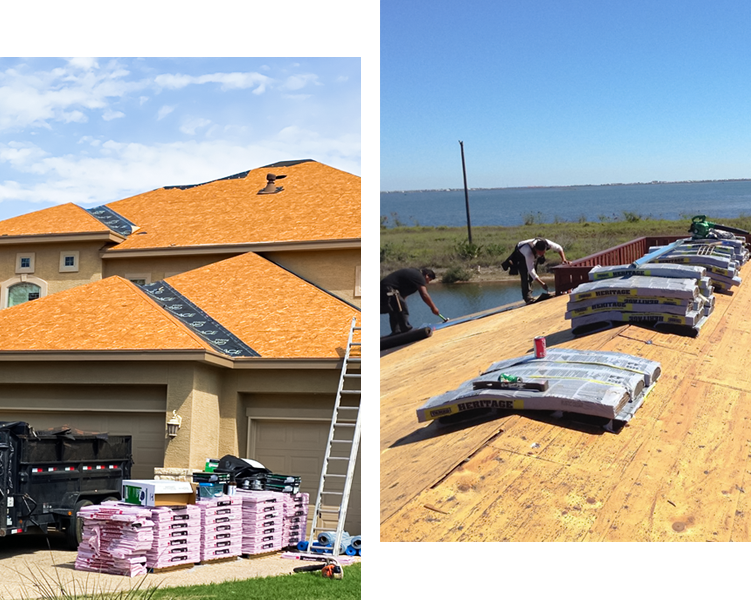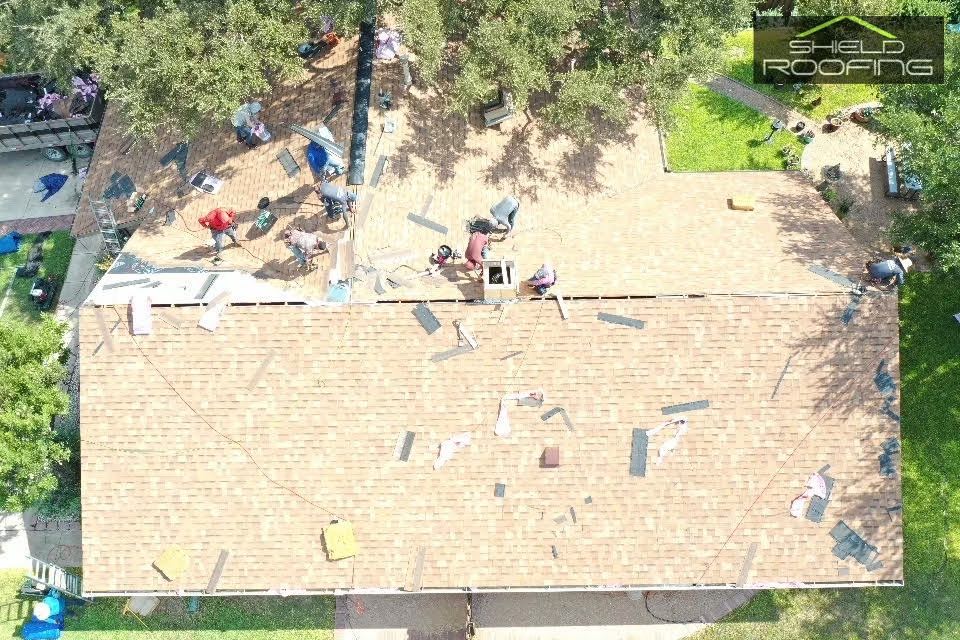Maintaining proper insurance coverage is a critical consideration for any business in the State of Texas, especially those operating in the roofing industry. With the ever-changing regulations and policy options available to businesses, it can be difficult to determine which insurance policies are necessary for compliance and legal protection. This article will provide an overview of what types of insurance coverage should be obtained by roofing contractors working in Texas, so that they may remain compliant with state laws while also protecting themselves from potential liability risks.
The first step to obtaining adequate insurance coverage as a roofing contractor in Texas is understanding the various requirements set forth by both federal and state laws. The Federal Employee Retirement Income Security Act (ERISA) requires employers to have workers’ compensation and disability insurance; however, other than this requirement there are no additional rules or guidelines regarding specific types of insurance coverage needed by roofers in Texas.
In addition, each individual municipality within Lone Star State has its own unique set of codes and ordinances related to construction projects, including those involving roofs. As such, it is important for every roofer working in Texas to familiarize themselves with all applicable local building codes prior to beginning any project.
Finally, although it is not mandatory for roofers working in Texas to carry certain types of insurance beyond ERISA requirements, having additional forms of coverage can help protect against costly liabilities associated with accidents or damages caused during work performed on residential or commercial sites.
By considering their operations carefully along with consulting experienced professionals when making decisions about insurance coverage needs, roofers can ensure they have sufficient protection while remaining compliant with all relevant laws and regulations.
Definition Of A Roofing Contractor
A roofing contractor is a professional who specializes in the installation, roof replacement, and roof repair of any type of roof. They are responsible for installing materials such as shingles, tiles, metal sheets, and other waterproofing components to protect buildings from weather elements. In addition to installation, they may also be tasked with inspecting existing structures for potential damage or degradation caused by wear and tear, storms or aging.
Roofing contractors must adhere to local building codes when performing their work and should possess knowledge of other construction methods that intersect with their specialty. For example, some roofs require flashing around vents or chimneys which requires an understanding of carpentry skills. Roofers need to have experience working with hazardous materials like asbestos or lead-based paints as well as being able to safely operate heavy equipment such as scaffolding and ladders. Finally, they must follow safety guidelines set forth by OSHA (Occupational Safety & Health Administration) while on the job site.
Types Of Insurance Needed
In the state of Texas, roofing contractors should carry liability insurance to protect against claims resulting from injury or property damage during work. This includes general and professional liability coverage as well as workers’ compensation insurance in case someone is injured while on the job.
In addition, they should also have a performance bond which guarantees completion of the project according to contract specifications. Lastly, it is recommended that roofers purchase umbrella policies for extra protection against unforeseen risks such as lawsuits or weather-related events. These types of policies can provide additional coverage beyond what general business and other insurances may not offer.
It is important for any contractor doing business in Texas to evaluate their insurance needs based on the type of work being done and potential liabilities associated with each job before beginning construction projects.
Liability Coverage Requirements
In Texas, roofing contractors must carry a minimum of $500,000 in general liability insurance to cover any property damage or bodily injury that may occur during their work. This coverage protects the contractor and acts as financial protection should they be held liable for any damages caused while on the job. Additionally, all direct employees working on the project are covered under this policy regardless of fault.
It is important to note that while most insurers require proof of general liability insurance prior to providing coverage, there are some states where additional forms of coverage such as workers’ compensation insurance may also be legally required before contracting with a roofer. Workers’ compensation provides monetary support if an employee is injured on the job, and covers medical costs associated with treatment for those injuries.
Workers’ Compensation Insurance
In Texas, roofing contractors must carry workers’ compensation insurance. This type of insurance provides coverage and financial support for employees who have been injured or become ill while working on the job. It also protects employers from being held liable in cases where an employee is injured due to negligence or misconduct.
Workers’ compensation covers medical expenses related to workplace injuries, lost wages when an employee is unable to work due to injury, and death benefits if a worker dies as a result of their job duties. In addition, it enables employers to avoid civil lawsuits from employees seeking damages for workplace-related illnesses or injuries.
Therefore, it is important that all roofing contractors in Texas obtain adequate workers’ compensation insurance coverage before beginning any construction projects. Moreover, this type of insurance should be kept up-to-date at all times so that both employers and employees are properly protected during the course of employment.
Property Damage Insurance
In addition to workers’ compensation insurance, it is also important for a roofing contractor in Texas to carry property damage insurance. This type of coverage offers protection from any losses or damages that occur on the job site as a result of their work. Property damage can include both physical and financial losses from an accident or natural disaster, such as having to replace damaged equipment due to hail or windstorms.
Additionally, this type of policy may cover any liability costs associated with legal claims resulting from accidents caused by the roofer’s negligence. Furthermore, certain policies may also provide coverage for lost wages should the project be delayed due to property damage. It is important to ensure that the roofing contractor has adequate coverage before beginning any project so they are protected against potential risks.
Professional Indemnity Insurance
Professional Indemnity Insurance is an important form of coverage for any roofing contractor in Texas. This type of insurance provides protection from claims alleging financial loss resulting from errors or omissions made in the course of providing professional services.
Professional Indemnity Insurance can also be used to cover legal costs associated with defending against a claim, and may even include compensation awards if the case results in a settlement or court judgment.
It is essential that roofing contractors have adequate Professional Indemnity Insurance coverage to protect their business should they face a claim. Without this coverage, roofers could incur significant costs due to litigation or settlements related to poor workmanship or negligence on their part.
It is advisable for roofing contractors to speak with experienced brokers and insurers who specialize in Professional Indemnity Insurance when selecting an appropriate policy for their operations.
Understanding The Texas Legal System
In Texas, roofing contractors must carry certain insurance coverages to protect themselves and their customers. The most important of these is general liability insurance, which covers property damage or personal injury caused by the contractor’s negligent acts. Those working in commercial construction should also carry workers’ compensation insurance, which covers medical expenses and lost wages for employees injured on the job.
Additionally, some cities require a bond with a surety company that guarantees completion of contracted work as well as provides protection against any malfeasance from the contractor. It is critical for contractors to be aware of local ordinances regarding legal requirements for operating in their locality.
Texas laws state that all roofs installed must meet specific standards set forth by the state’s Building Codes Advisory Board (BCAB). Contractors must abide by BCAB regulations when installing new roofs or repairing existing ones.
Furthermore, contracts between homeowners and contractors should include provisions about warranties, payment schedules, dispute resolution procedures, and other relevant matters pertaining to the project at hand. A thorough understanding of these legal requirements will help ensure smooth operations and reduce risk in both residential and commercial roofing projects.



